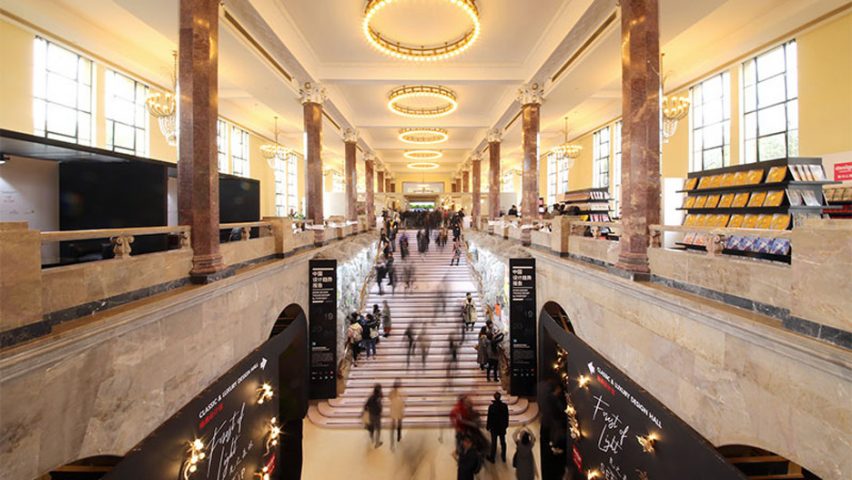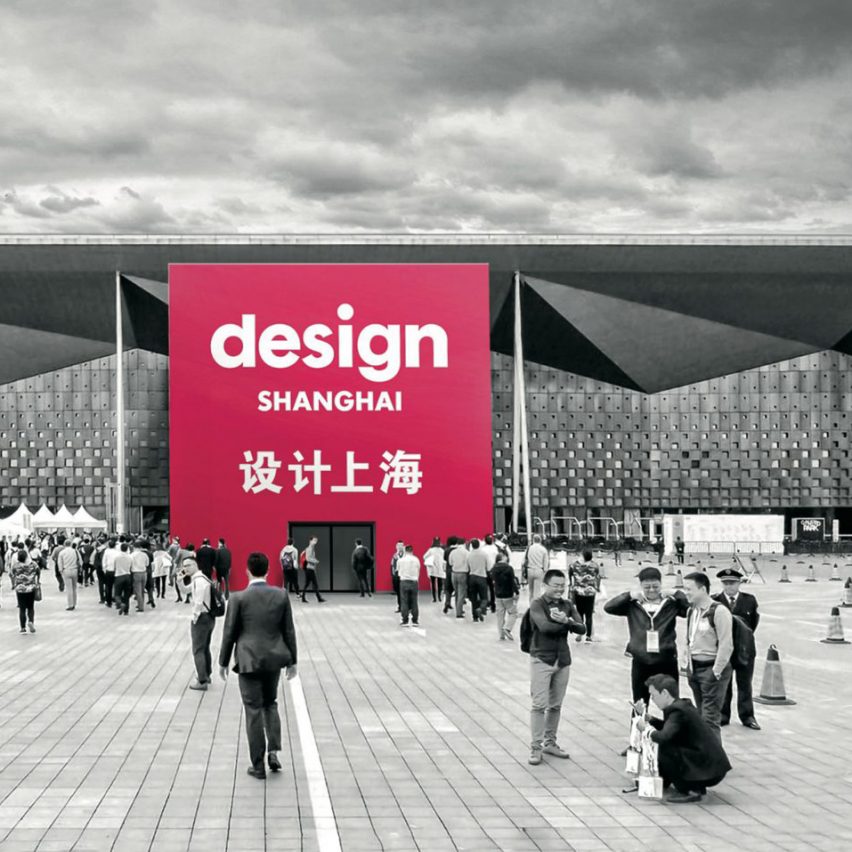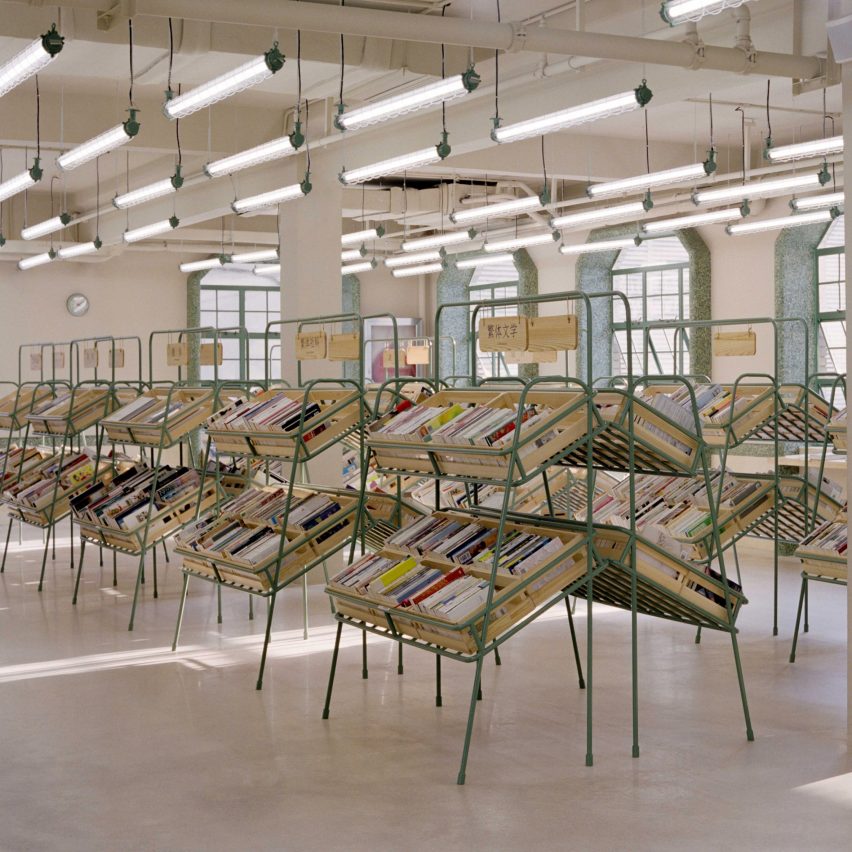
Chinese architects and designers confident of bounceback as Covid restrictions ease
Architects and designers in China have told Dezeen they expect domestic and international work to ramp up now that tight Covid restrictions are finally easing.
"I believe as a Chinese architect, it's an opportunity for us to take projects from overseas," said Weico founder Wei Sun.
"We will also look into doing more international projects by submitting our work into global competition," echoed FOG Architecture founder Yu Zheng.
"We look forward to welcoming the global collaborations with world's leading structure and landscape consultants back to projects in China, attracting the best international talents to work in our Beijing office," said Qun Dang, principal partner at MAD Architects.
"We are confident that there will be more to develop in rural China including cultural traveling planning, landscape design and boutique hotels," added Jianan Shan of Say Architects.
China has pursued an aggressive zero-Covid policy since the beginning of the pandemic leading to frequent lockdowns, particularly in 2022.
But, following rare mass street protests in November, travel rules have been eased and the requirement for those testing positive to quarantine in centralized facilities has been scrapped.
Design fairs seek rebound
On 27 December, China announced its decision to reopen its borders for international travel from January 8.
The news came just in time for design fairs in China, which rejected all physical events last year due to continuous hard lockdowns throughout the country.
Design Shanghai, the largest design show in Asia, was canceled in 2022. Its sister brand Design Shenzhen, originally due to launch in December 2021 but scuppered by the pandemic, has now finally confirmed that its inaugural edition will take place in March.
Shows are now eager to return bigger than ever before and attract significant involvement from overseas studios and brands.

"Everyone is more dedicated than ever to reviving the design shows in China," Design Shanghai director Zhuo Tan told Dezeen.
"This year will be the 10th anniversary of Design Shanghai," she said. "We plan to host the biggest show in terms of scale with a large number of international brands and designers physically being at the show."
"Our current focus is to invite international brands to join our show this year, increase our promotion overseas and reshape the confidence in the Chinese market."
Guangzhou Design Week, moved from December 2022 to March 2023, is also gearing up for more international partnerships.
"We will increase the exhibition space for international furniture brands to attract more of them to showcase new products at Guangzhou Design Week 2023," said CEO Wenguang He. "We also plan to launch a global design tour this year, to increase collaborations with our key global partners."
Chinese studios eyeing international expansion
Chinese architects and designers are embracing the refound freedom of international travel.
Shanghai-based interior design studio Offhand Practice has already booked an overseas design tour for the team in the first quarter of 2023.
"Travel is the most effective way for a designer to grow and gain more perspectives," said Offhand Practice founding partner Yuan Yuan.
"We also look forward to participating in more international design fairs and exhibitions this year," she added.
Say Architects' Shan is also excited about seeing new projects from around the world now that the travel ban has been lifted.
"We can finally travel internationally more regularly to see the latest projects and learn from them," Shan told Dezeen.

Beijing-based architecture studio MAD Architects has already begun global expansion, with offices in Rome and Los Angeles set up before the pandemic.
"With China's border opening now, we expect to increase the involvement from our head office in Beijing in overseas projects with more staff being able to travel for site visits and workshops more frequently," principal partner Dang told Dezeen.
The firm's China office has been directly impacted due to the pandemic restrictions. "Our global partners, consultants, and design talents were unable to visit us in China," explained Dang.
"We are saddened by the isolation and divisions caused by the pandemic or used as an excuse for it. We have been waiting and anticipating China's re-opening, because it will impact the cross-border and cross-cultural communication and interaction."
"We look forward to welcoming the global collaborations with world's leading structure and landscape consultants back to projects in China, attracting the best international talents to work in our Beijing office."
As well as working on more international projects, MAD will look to increase its investment in publishing and exhibitions as a way to strengthen architectural dialogue between East and West, she added.
Sun, the former partner at Henn who founded his own architecture studio Weico last year, will go to Southeast Asia to explore the potential of expanding the business.
"It's very common for Chinese projects to attract design proposals from international studios, with the border opening now, I don't think there will be a significant influx of international competition because it's already highly competitive," explained Sun.
"However, we rarely see international studios actively engage in other territories. I believe as a Chinese architect, it's an opportunity for us to take projects from overseas."
Unlocking a "boost of confidence"
The unlocking is also a "boost of confidence" for international studios that work in China.
"It finally ended the uncertainty Covid has created, and speeds up the work that's been delayed because of it," said Maggie Wu, principal and marketing director of Perkins&Will, who is based in the global firm's Shanghai office.
"It's definitely a boost of confidence. Of course, the in-person interaction between our Shanghai office and other overseas offices can return to normal as well."
Similarly, Danish textile firm Kvadrat is planning more in-person interaction between its China office and headquarters in Europe, including sending Chinese staff to the head office for training as well as inviting Chinese clients to Europe for tours.

Emerging Chinese studio FOG Architecture has been struggling to manage its team of 20 scattered all over the world from London to Seattle to Shanghai to Melbourne, but now it sees this dispersion as a strength.
"Everyone can leverage their time zone and local knowledge to contribute to projects, " said studio co-founder Zheng.
"We were blessed with a few commercial retail projects in the first two years of Covid. However, in 2022, the sector was hit by regular lockdowns and we realized we have reached our limits."
"We have since tried to participate in much bigger-scale architecture projects and we will continue to do so. We will also look into doing more international projects by submitting our work into global competition."
However, for Chinese travelers, international travel has not yet fully returned to pre-Covid level and is not without immediate challenges.
The US, Canada, UK, France and Italy are among those that require proof of negative Covid tests within 48 hours of departure for all travelers from China. The newly imposed measures are a direct response to China's re-opening, given the concern over rising infections in the country.
South Korea and Japan have stopped issuing tourist visas for those coming from China and require both pre-departure and arrival testing for Chinese visitors. China has since stopped issuing short-term visas to individuals from South Korea and Japan in retaliation.
But these issues have not affected the optimism of Chinese studios, which have learned to be adaptable in the past three years.
"Our studio was founded four years ago, so the majority time of our practice was under Covid restrictions," said Yuan. "We almost feel that uncertainty is the normality, which makes us more resilient to changes and adaptation."
"At Say, we always adjust our business based on the shift of market and consumer behavior," added Shan.
Restaurants to become a focus for Say
Development in rural China and restaurant design will be new focuses for Say Architects this year, according to Shan.
"Urban resources in China are becoming increasingly limited. In addition to the rebound of domestic travel post-Covid, we are confident that there will be more to develop in rural China including cultural traveling planning, landscape design and boutique hotels."
"While in the city, we will expand to restaurant design, which was hit badly by Covid restrictions," he added.
Despite the overall optimism among Chinese studios, some difficulties remain for architects and designers as the country re-opens.
Yuichiro Hori recently returned to China for the first time since moving his base from Shanghai to New York last May.
Stellar Works, the furniture brand Hori founded in Shanghai, has been forced to shift its product launch plans for the whole year following a spike in Covid infections among its Chinese manufacturing staff since restrictions started to ease.
"I've already paid the exhibition deposit for Salone in Milan this year but had to cancel, because we couldn't ship the products in time because of the production delay," Hori told Dezeen. "Usually we have to ship all products for Salone before Chinese New Year."
Stellar Works is planning to open more showrooms in North America, and has set an ambitious target to expand the business in the US. It is currently testing a modular hotel guestroom concept that will be launched in May during New York Design Week.
Dezeen is on WeChat!
Click here to read the Chinese version of this article on Dezeen's official WeChat account, where we publish daily architecture and design news and projects in Simplified Chinese.